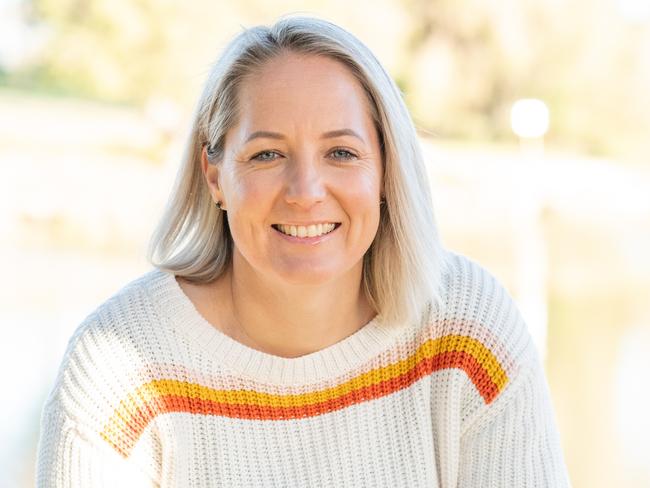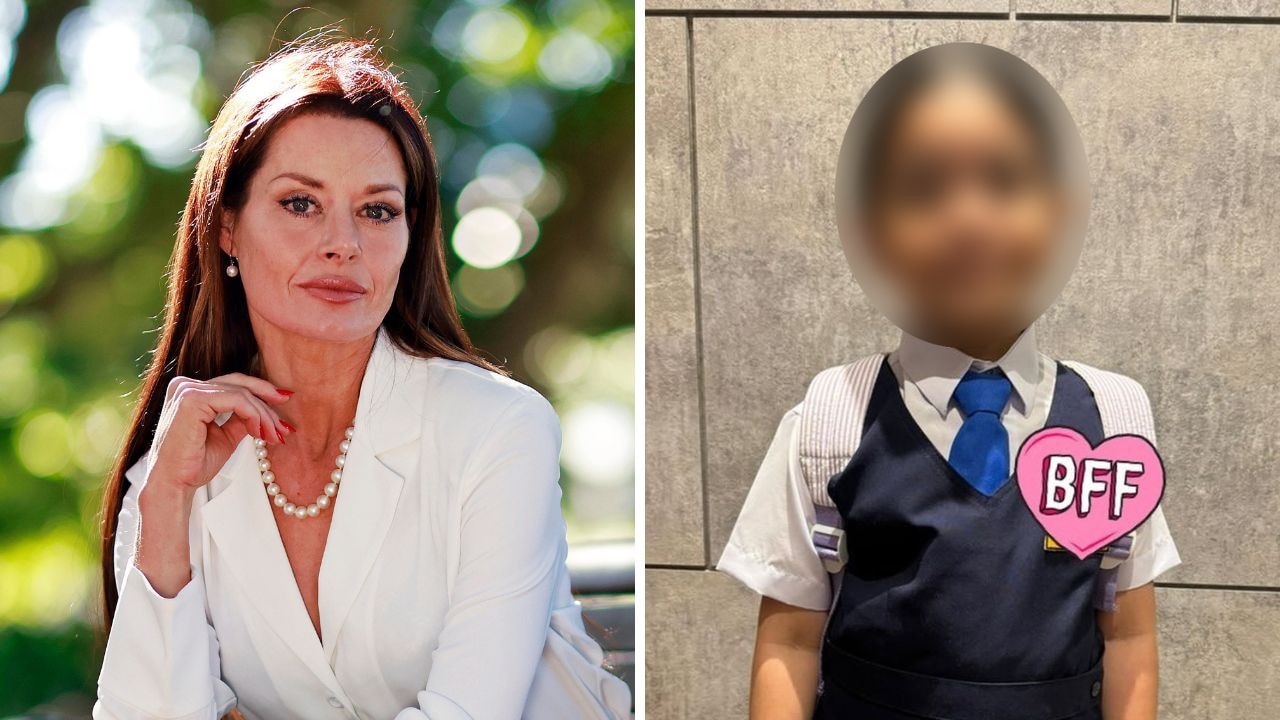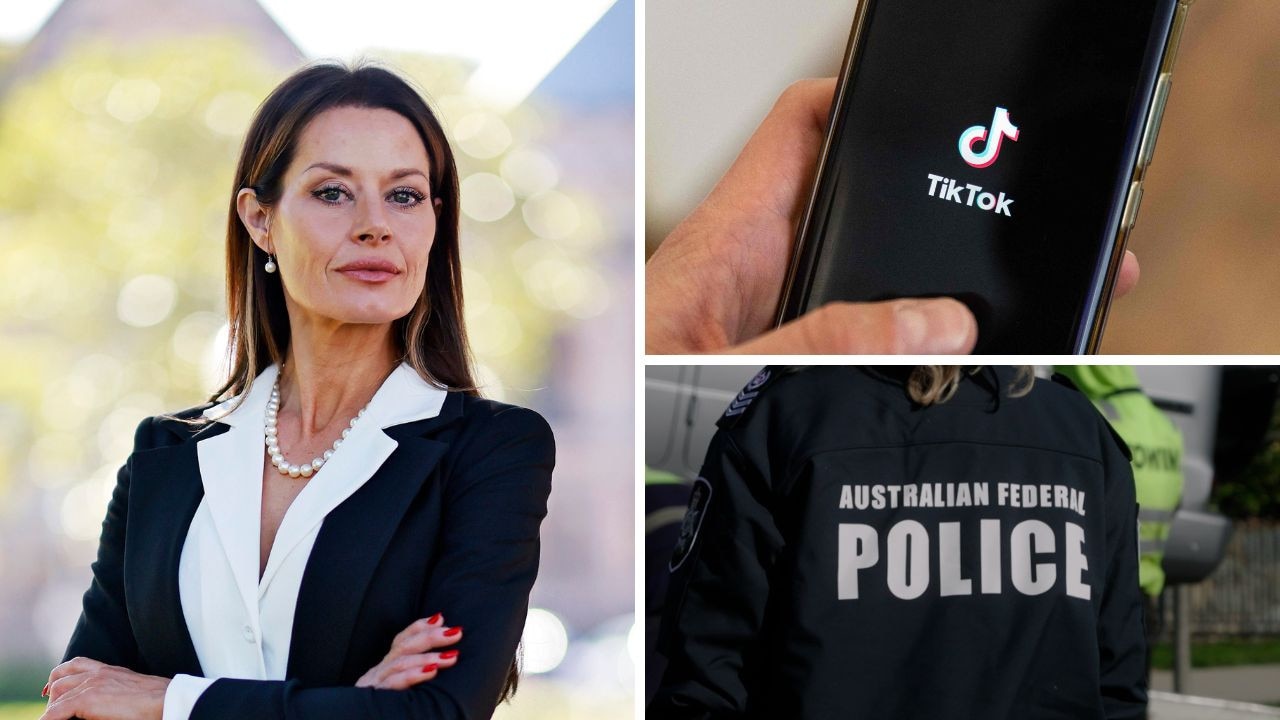Ex-Detective Kristi McVee busts six myths for parents to know
A former specialist child interviewer and a detective, who has investigated cases of child sexual abuse, explains common myths about paedophiles Aussie parents don’t know.
Predatory
Don't miss out on the headlines from Predatory. Followed categories will be added to My News.
‘If parents knew what I knew, they would do things differently with their kids’.
That is the thought that runs excessively through my mind after 10 years as a specialist child interviewer and a Detective, interviewing victims and investigating cases of child sexual abuse.
After 10 years, I can categorically say, ‘yes’ we do need to keep an eye out for strangers when it comes to our children’s safety but we NEED to be watching the people in our own backyards first and foremost.
So, what do you picture when you think ‘child sex offender’? Do you think, creepy man in a white van? Maybe an unkempt appearance, long beard, handing out lollies or watching kids from afar? In my career, I didn’t see many child sex offenders that fitted this outdated profile.
What I did see were parents, grandparents, uncles, aunties, step-parents, cousins, siblings, close family friends, parents of friends, neighbours, coaches, teachers and adults of all manner of careers, abusing children. The stereotype of ‘old man in a white van’ has enabled child sexual abusers to hide in plain sight often causing us to let our guards down around the people we should be watching.
Let’s debunk some myths and get educated on how they work and in turn, keep our kids safe from harm.

Myth 1 – Child sexual abuse isn’t common
It has been documented that one in three girls and one in seven boys are sexually abused by the time they reach the age of 18 in Australia.
Child sexual abuse is far more common that it once seemed, because we no longer bury the subject.
From my experience and when I speak with the families of victims, including parents and grandparents, they share similar stories from their own childhoods of child abuse. Even now, I have at least one person disclose their child abuse to me in-person and online, each day.
Myth 2 – All child sex abusers are attracted to children
There are actually three main types of child sex perpetrators who abuse children:
* Fixed and persistent perpetrators – long-term sexual attraction to children and young people. Often serial repeat offenders, abusing many children over a lifetime and have a typical ‘pedophilic’ interest in children. This is the stereotypical child sex offender we associate with grooming children.
* Opportunistic perpetrators – not necessarily attracted to children/young people but will use children for sexual gratification if an opportunity presents itself. Are less likely to groom and create situations to abuse children like the first perpetrator but will if given the chance.
* Situational perpetrators – Do not usually have a sexual preference for children. They sexually abuse children in response to things happening in their own lives that make them feel out of control, like the loss of a relationship, loss of job, social isolation, lack of positive adult relationships and low self-esteem.
LISTEN TO THE PREDATORY PODCAST BELOW:
Myth 3 – It is only men who abuse children
During the Royal Commission into institutionalised child sexual abuse, it was found that 93.9 per cent of child sexual abuse was perpetuated by adult men. Unfortunately, there are still a lot of female child sexual abusers and in the cases I saw, most victims of female offenders are less inclined to come forward and report their abuse.
Women are more inclined to facilitate and enable the abuse of a child for the male abuser and are therefore also a party to the offence of abuse against a child.
Myth 4 – Child sex abusers are abused as children
Although there is a link between those who are sexually abused as children and becoming an abuser, it is not easy to prove due to the difficult task of substantiating claims of historical child sexual abuse.
It is also possible that child sexual abusers will use the claim of being a victim of child sexual abuse to create compassion towards them instead of being seen as a monster in society.
Myth 5 – Child sex abusers are strangers
Ninety per cent of children who are sexually abused know their abuser, according to Australian Bureau of Statistics data. Over the years, the number of cases of child sexual abuse I saw that were perpetuated by a family member, close lineal relative or friend were overwhelming.
Myth 6 – Kids are safe with other children
Between 30-50 per cent of child sexual abuse is perpetuated by another child in the form of Harmful Sexualised Behaviours (HSB). Almost 43 per cent of HSB is perpetuated within the victim’s home with 30.4 per cent of HSB carried out by a sibling, 28 per cent by a classmate and 14 per cent by a friend.
HSB is regularly justified away by adults as ‘kids just being kids’, ‘harmless experimenting’ or ‘doctors and nurses’, however, HSB’s are a major portion of all child sexual abuse and a large cause of trauma for survivors.
Remembering that a child displaying HSB is still a child and also potentially a victim themselves of some form of abuse. Education and support are necessary for children displaying HSB to enable them to develop and grow into healthy adults.
With knowledge comes power. Through debunking these myths, we are better able to understand how child sex abusers work and take preventive action to ensure our children are happy and safe.
Here are some tips on how to help keep your kids safe from abuse:
*Learn the lessons taught in Protective Behaviours education and teach them to your children.
*Ensure your children know the anatomical names for their genitals and private parts.
*Discuss safe & unsafe secrets and what they are with your child.
*Educate yourself around the ‘six stages of grooming’ and how a child sex abuser can groom children.
*Help your child identify five trusted, safe adults in their family/friend network who they can talk to if they feel unsafe.
*Be an approachable parent. Have the embarrassing, difficult conversations with your kids and be open and honest around the topics which will have the greatest impact on their safety.
Kristi McVee is an ex-Detective and specialist child interviewer who has written the book Operation KidSafe – a detective’s guide to child abuse prevention to share the knowledge she gained in the Police with parents and caregivers. Available on Amazon or via www.cape-au.com.




